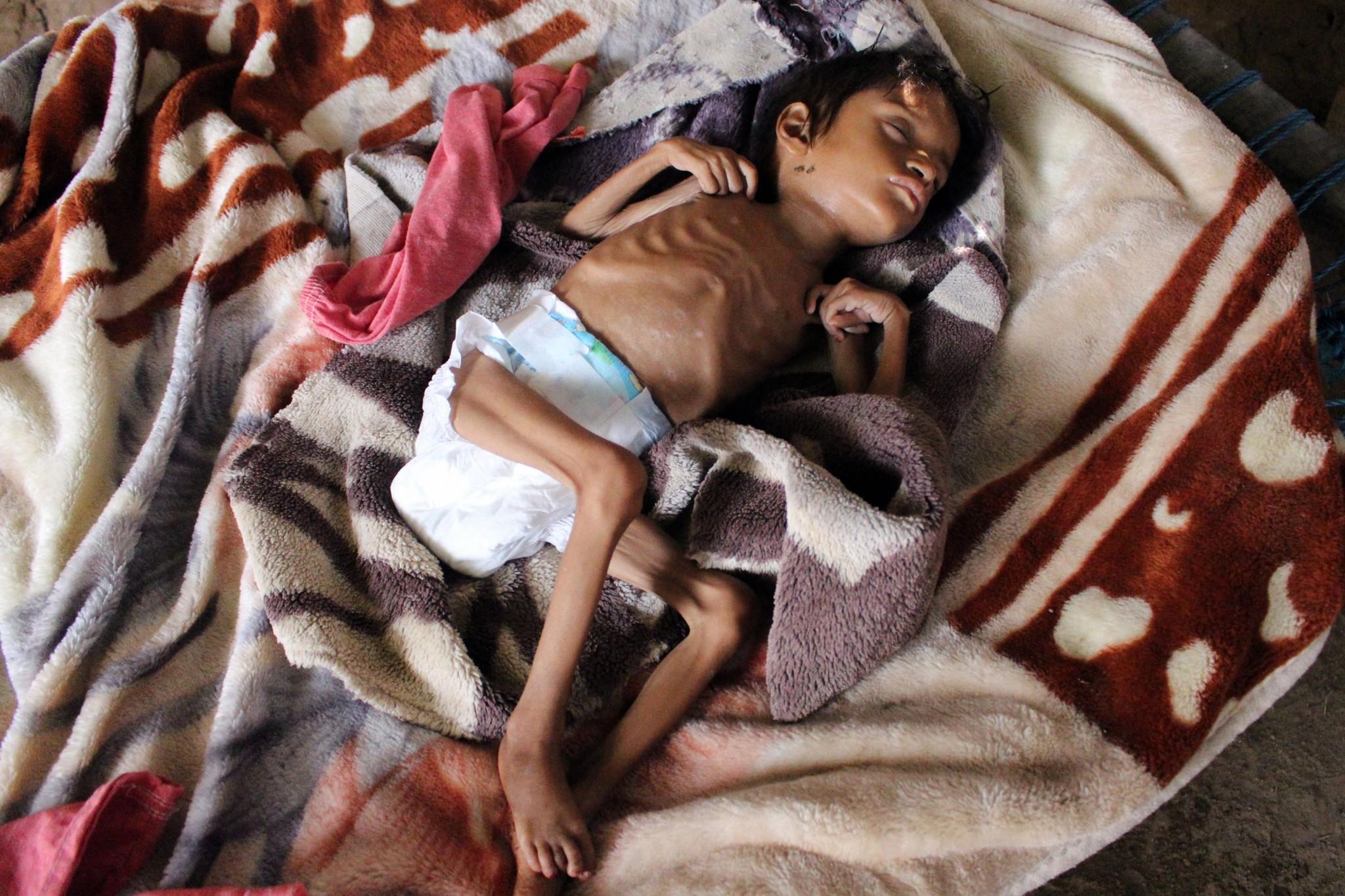Millions of children face starvation in Yemen during coronavirus, new Unicef report shows
Situation is only expected to get worse as donor countries recently cut back on aid

Your support helps us to tell the story
From reproductive rights to climate change to Big Tech, The Independent is on the ground when the story is developing. Whether it's investigating the financials of Elon Musk's pro-Trump PAC or producing our latest documentary, 'The A Word', which shines a light on the American women fighting for reproductive rights, we know how important it is to parse out the facts from the messaging.
At such a critical moment in US history, we need reporters on the ground. Your donation allows us to keep sending journalists to speak to both sides of the story.
The Independent is trusted by Americans across the entire political spectrum. And unlike many other quality news outlets, we choose not to lock Americans out of our reporting and analysis with paywalls. We believe quality journalism should be available to everyone, paid for by those who can afford it.
Your support makes all the difference.Unicef has warned that millions of children could be pushed to the brink of starvation as the coronavirus pandemic sweeps across war-torn Yemen amid a “huge” drop in humanitarian aid funding.
It said the number of malnourished Yemeni children could reach 2.4 million by the end of the year, a 20 per cent increase on the current figure.
The stark prediction comes in a new report by the UN’s children’s agency, entitled “Yemen five years on: children, conflict and Covid-19”.
The agency warned: “As Yemen’s devastated health system and infrastructure struggle to cope with coronavirus, the already dire situation for children is likely to deteriorate considerably.”
Yemen’s poor health care infrastructure is unprepared to battle the coronavirus pandemic after five years of war between a Saudi-led military coalition and the Iranian-backed Houthi rebels.
The war has also triggered the world’s worst humanitarian crisis.
The conflict erupted in 2015 when the Saudi-led coalition stepped in on behalf of the internationally recognised government, which the Houthis had forced into exile when they overran the capital, Sanaa, and much of the north the previous year.
The situation in Yemen is only expected to get worse as donor countries recently cut back on aid.
Yemen has officially recorded more than 1,000 cases of Covid-19, the illness caused by the coronavirus, including 275 deaths.
However, the actual tally is believed to be much higher as testing capabilities are severely limited.
Sara Beysolow Nyanti, Unicef’s representative to Yemen, said: “If we do not receive urgent funding, children will be pushed to the brink of starvation and many will die.
“The international community will be sending a message that the lives of children ... simply do not matter.”
Unicef also warned that unless $54.5m (£43.8m) is disbursed for health and nutrition aid by the end of August, more than 23,000 children will be at increased risk of dying because of acute malnutrition. It also said that five million others under the age of five will not have access to vaccines against deadly diseases.
International relief agencies are alarmed by the significant decline in humanitarian funding promised earlier by donor countries.
A virtual pledging conference for Yemen hosted by the UN and Saudi Arabia on 2 June saw 31 donors pledge $1.35bn (£1.08bn) for humanitarian aid – $1bn (£805m) short of what aid agencies needed, and half of what countries had pledged in 2019.
Unicef could only secure 10 per cent of the $461m (£371m) it appealed for to cover its humanitarian response to the crisis in Yemen, and less than 40 per cent of the $53m (£42m) it needs to handle the impact of Covid-19 on children, said the report.
Ms Nyanti said: “Unicef is working around the clock in incredibly difficult situations to get aid to children in desperate need, but we only have a fraction of the funding required to do this.”
The report follows a warning by UN humanitarian chief Mark Lowcock, who told a closed UN Security Council meeting that Yemen could “fall off the cliff” without massive financial support.
Mr Lowcock added that Covid-19 is spreading rapidly across the Arab world’s poorest country, killing about 25 per cent of confirmed cases – five times the global average.
Half of Yemen’s health facilities are dysfunctional and 18 per cent of the country’s 333 districts have no doctors.
Water and sanitation systems have collapsed, resulting in recurrent cholera outbreaks.
Around 9.6 million children do not have sufficient access to safe water, sanitation, or hygiene, and two-thirds of the country’s roughly 30 million people rely on food assistance.
PA
Join our commenting forum
Join thought-provoking conversations, follow other Independent readers and see their replies
Comments